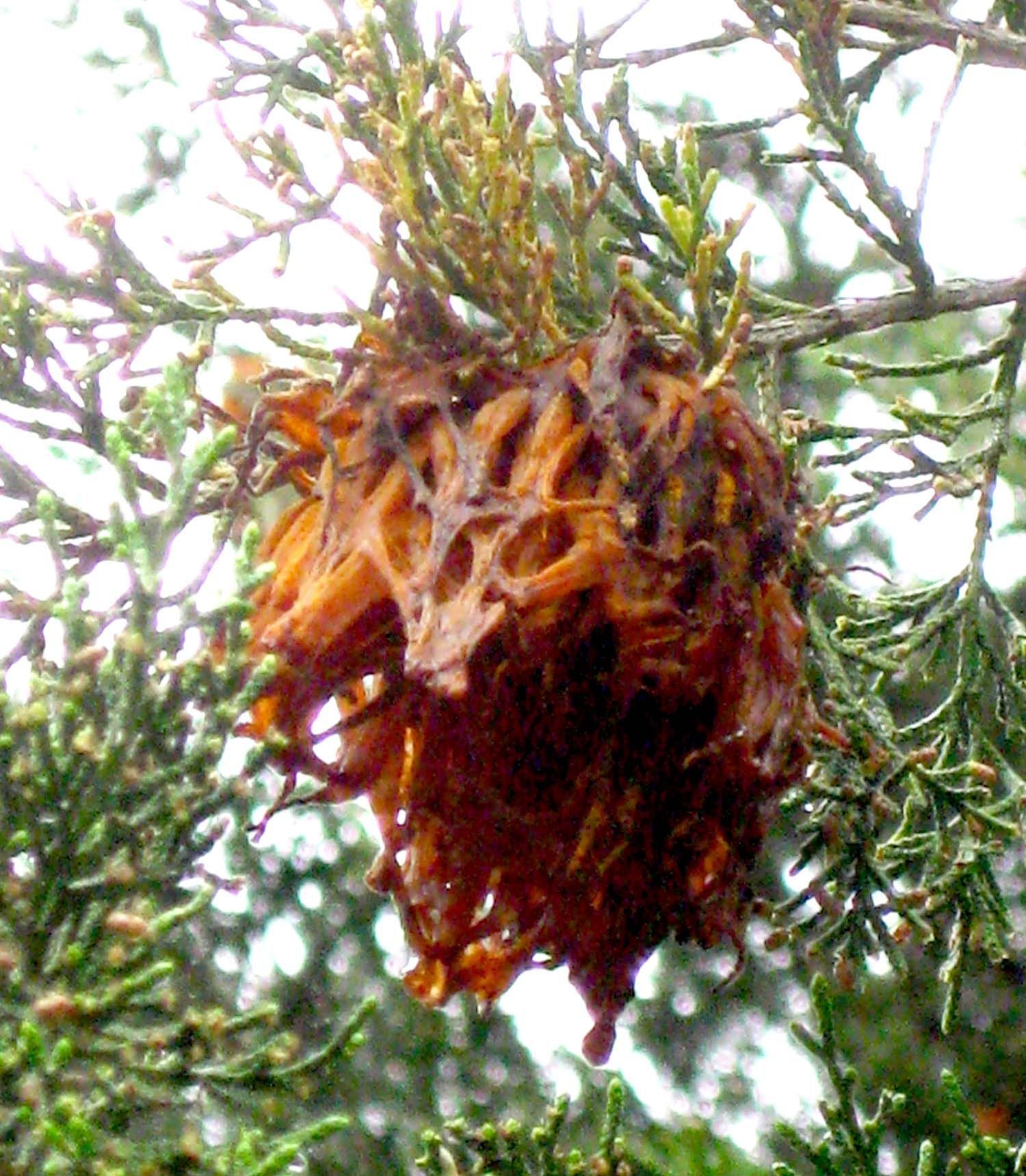Problems: Rust in cedars, squash bugs and snakes
Published 12:00 am Friday, June 6, 2014
SALISBURY — Gardening is in full swing, delicious produce is arriving at the markets and questions are pouring into the Cooperative Extension office. Check below for the latest issues across the county:
Question: What is all over my cedar tree?
Answer: This client provided one of the submitted photos of their cedar tree. The large ball formations are from cedar apple rust. Eastern red cedars can receive cedar apple rust and quince rust. Cedars seem to handle the problem fairly well, but if you are trying to establish an orchard, removal of the trees may be necessary. Both of these can cause issues with apples that are located nearby. If left untreated, apples can be defoliated by the fungus.
Question: I have snakes on my patio and they keep returning. Do you know of anything I can spray that will keep them away?
Answer: Unfortunately there is no magical spray that works to keep snakes away. They are either attracted to your patio because it provides them a place to warm in the sun or your home has plenty of food to keep them occupied. To help reduce the instances of their visiting your patio, you can reduce your pest population, use snake fencing or try your best to be cautious around your new roommate.
Question: I have squash bugs already, what can I do?
Answer: I am also in the same boat. I have been scouting my garden for these pesky insects and they have arrived. First, you need to be scouting your garden — they lay their eggs on the tops and bottoms of the squash plants. They can also be on melons, cucumbers and the rest of the squash family, but they are most common on yellow squash and zucchini.
Second, if you are not practicing crop rotation, you are setting yourself up for failure because they will live over winter in the soil and debris left from last year’s garden.
Lastly, you need to develop a control plan. Scouting and crop rotation are two methods to begin with. Removing (completely off property) and destroying the leaves with eggs is an easy control, “squashing” the squash bugs is another, but they like to hide in the mulch, around the base of the squash and under plant debris.
One method to get a few is to place boards close to the stems of the squash and in the morning pull up the board and squash all of the squash bugs. They like to hide during the night and this is a simple way to get rid of them. There are some chemical controls, but we always recommend using cultural methods first. If you would like a list of chemical controls give the Cooperative Extension a call at 704-216-8970.
Question: I would love to get my grandchildren into gardening, do you have any resources and are you doing anything in the county?
Answer: Yes, we most definitely do! Youth gardening is one of the objectives of our programming. We are currently working with Sacred Heart Catholic School and Millbridge Elementary and are in the beginning stages with Rockwell Elementary and Enochville Elementary. We have some great 4-H clubs, such as the Sacred Heart Cultivators and a newly started 4-H Junior Master Gardener Program. We have offered courses on pallet gardening for children and we will be doing courses throughout the year for gardening with youth and beginning gardening. Be sure to be on the lookout for youth activities at the farmers’ market, with the Extension Master Gardener Association, and summer camps at Millbridge Elementary.
For more information on plants, insects, trouble-shooting problems or gardening with your youth, contact your local Extension agent, Danelle Cutting, at 704-216-8970.
You can also visit some of the websites below:
Cedar Apple Rust: http://www.ces.ncsu.edu/fletcher/programs/apple/plantpath/CARfact.html
Squash Bugs: http://caldwell.ces.ncsu.edu/2013/06/squash-bugs-active-now/?src=rss
Rowan County 4-H Clubs: http://rowan.ces.ncsu.edu/clubs/




